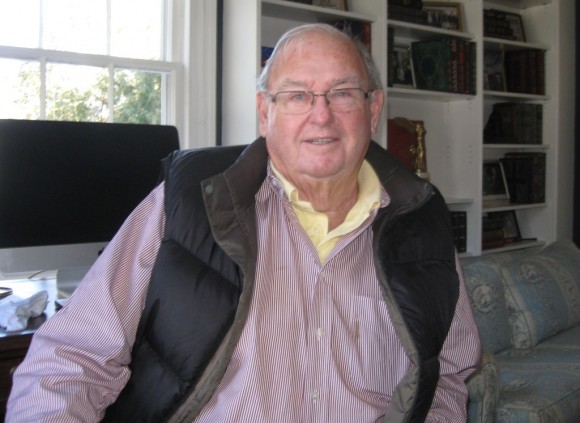
Lowell Weicker, a former Governor and Senator of Connecticut, has expressed his support for the Obama’s administration new policy of normalizing diplomatic relations with Cuba. In taking this position, Weicker noted in an interview at his home in Old Lyme with ValleyNewsNow yesterday that current polls show that 60 percent of Americans support diplomatic recognition of Cuba.
In adopting a new U.S. relationship with Cuba, Weicker said, “Finally, we are catching up with the times.” He continued, “The U.S. embargo has lasted for 50 years, yet country after country has recognized Cuba with only the United States in not doing so.” Weicker also expressed criticism of those who oppose the Obama Administration new policy of recognizing Cuba, such as U.S. Senator Marco Rubio of Florida.
Positive Aspects of Today’s Cuba
According to Weicker, “The most positive aspects of the present Castro regime in Cuba are in the areas of health care and good public education. Ninety nine percent of Cubans have free health care and good public education, a complete turnaround from the days of Battista.” At the same time, Weicker faulted the present Cuban government, “for its lack of human rights and democratic elections.”
As for his personal relationship with Cuba, the former Connecticut Governor said, “My family owned a large business in Cuba, which was expropriated by the Castro government, after Battista fled the island. No one, especially myself, is going to extol Castro’s confiscation of private property.”
Weicker also noted his, “deep personal distaste for the dictatorship of Flugencio Battista, who preceded Fidel Castro. Early on,” he said, “most of the Cuban immigrants to the United States were allied with Battista. Indeed in my losing the 1988 Senate campaign, the Florida Cuban community poured late money into Senator Joe Lieberman’s campaign.”
Weicker’s Two Trips to Castro’s Cuba

Weicker also stated, “When I was a U.S. Senator, I made two trips to Cuba in the early 1980s. The first was to organize a joint American-Cuban marine science mission. The second was to secure the release of six American women imprisoned in Cuba.” According to Weicker, he, “convinced Castro, personally, to release the women who were in jail on drug charges. Two of the six were from Connecticut.”
Weicker described how, while in Cuba, he and Castro went diving together and spent many hours discussing Cuban-American relations. When Castro inquired whether there was anything he could do for Weicker, the Senator jokingly responded by requesting the Major League Baseball franchise for Havana. Castro’s response was, ‘No, we keep that.’”
In Weicker’s account, “When I announced to the Senate that I was to go to Cuba to retrieve the six women, U.S. Senator Jesse Helms of North Carolina tried to block the trip.” Failing that endeavor, Helms asked Weicker, confidentially, if he could bring back some cigars for him.
Weicker also makes the point that the wrapper leaf for Cuban cigars are traditionally grown in Connecticut, so Connecticut would directly benefit from the lifting of U.S. restrictions on the importation of Cuban cigars.
In conclusion, Weicker said, “Cuban dictator Battista was bad news, and I agree that the Castro brothers have had their own failings.” However, Weicker does not want the U.S. to live in the past as regards Cuba. He states, “It is only a question of time … Cuba will become more and more democratic. It is a new world, and one that should see two old friends reconcile.”